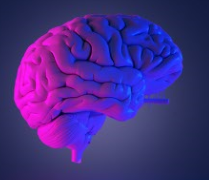Author: DynamicBrain Inc.
Publication: Monthly Newsletter
Published Date: November 22, 2023
Did you know that staying on your feet is a “brain job”? It’s because your brain is constantly telling your body to make tiny adjustments in milliseconds and millimetres so that you don’t fall down. For instance, if you trip on a crack in the sidewalk, the fact that you are starting to fall is detected by both your balance system (your “inner ear”) and visual system (which notices that the world is starting to tilt), and your brain sends commands to your muscles to help keep you upright. That’s when your brain speed becomes a major risk factor for falls!
As you know, the brain begins to slow down by very small amounts in our 20s. With each passing decade, the slowing grows, but we often notice it when we find ourselves increasingly pausing to think of a word. The same sort of slowing also impacts your processing speed and reaction time for movement. Studies show that training on three visual exercises in BrainHQ creates significant gains in balance and gait speed. Learn more.
Please help yourself and others before it’s too late. Do your brain training today, and if you still don’t have full access, join now.

Kind regards, Frieda Fanni
President
DynamicBrain Inc.
DynamicBrain Inc. is the Canadian partner of Posit Science Corporation since 2010 providing brain fitness program BrainHQ in English and French.
|
 |
 Beyond memory
Beyond memory
Scientists have discovered that early-stage Alzheimer’s disease causes distinct changes in brain networks (interconnected regions of the brain that share a similar function). The changes go beyond the impact we’d expect to see on memory and attention in Alzheimer’s, as well as beyond the impact normal aging has on brain networks.
Learn what the broader impact of Alzheimer’s is on brain networks and how scientists hope to use this information to detect the disease early.
 Thinking with your stomach
Thinking with your stomach
You may have heard people say that doing your grocery shopping while hungry is a bad idea because your hunger can influence what goes in your basket – extra cookies perhaps! New research suggests that there may be some truth to this. UCL (University College London) researchers have found that a hunger hormone produced in the gut can directly impact the brain’s decision-making centre, the hippocampus.
Find out what this study tells us about hunger and our eating choices.
 The brain and body intertwined
The brain and body intertwined
Scientists are challenging the traditional view of the brain as an isolated fortress shielded from the rest of the body by a biological barrier. Recent discoveries and new research outlined in an editorial article in the journal of Nature are revealing intricate reciprocal links between the brain and body, similar to how microorganisms in the gut are linked to disorders such as Parkinson’s disease.
Read on to see how neuroscientists are exploring beyond the brain in their search to understand health conditions.